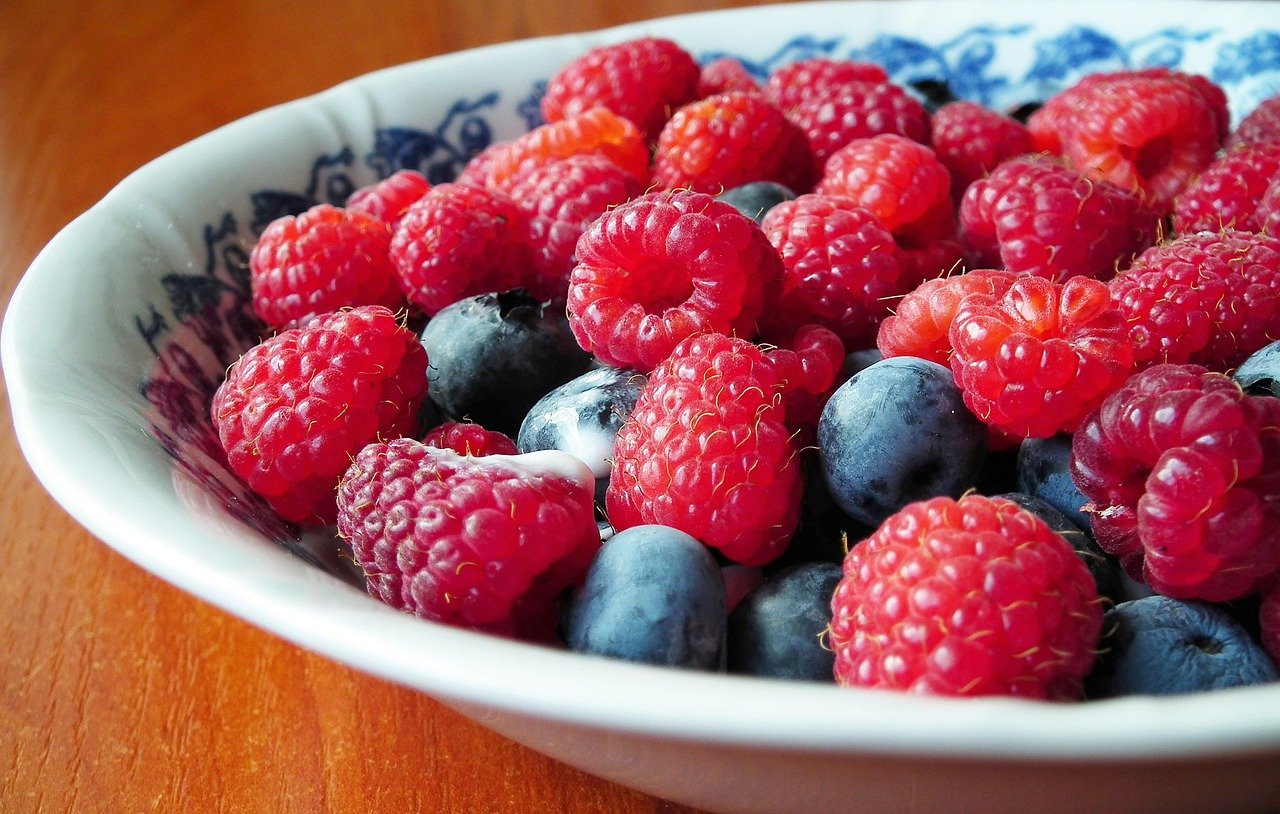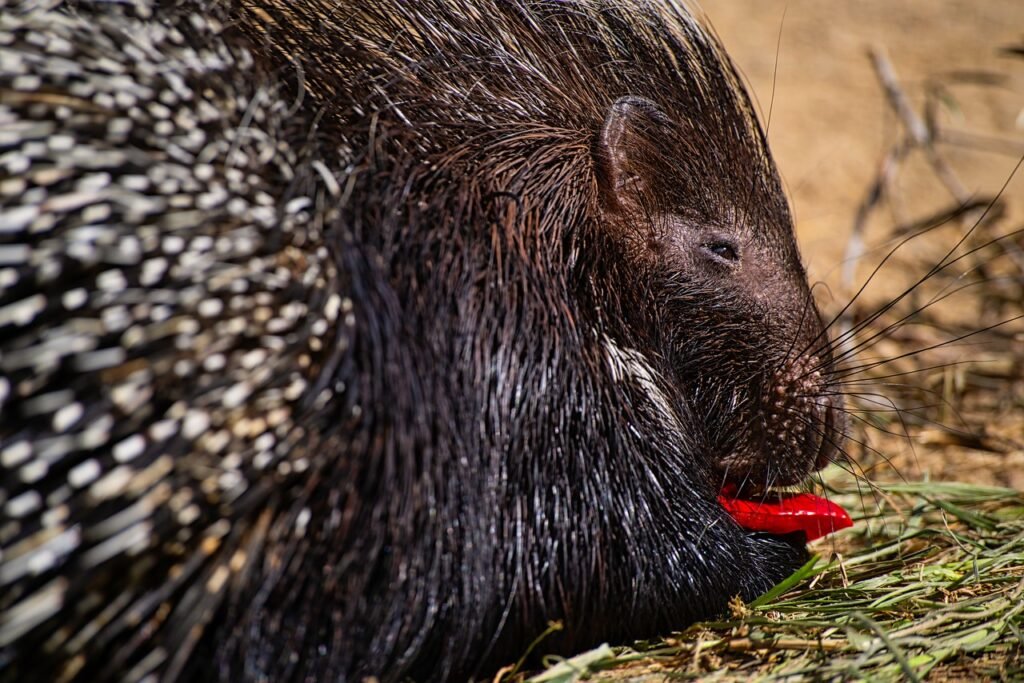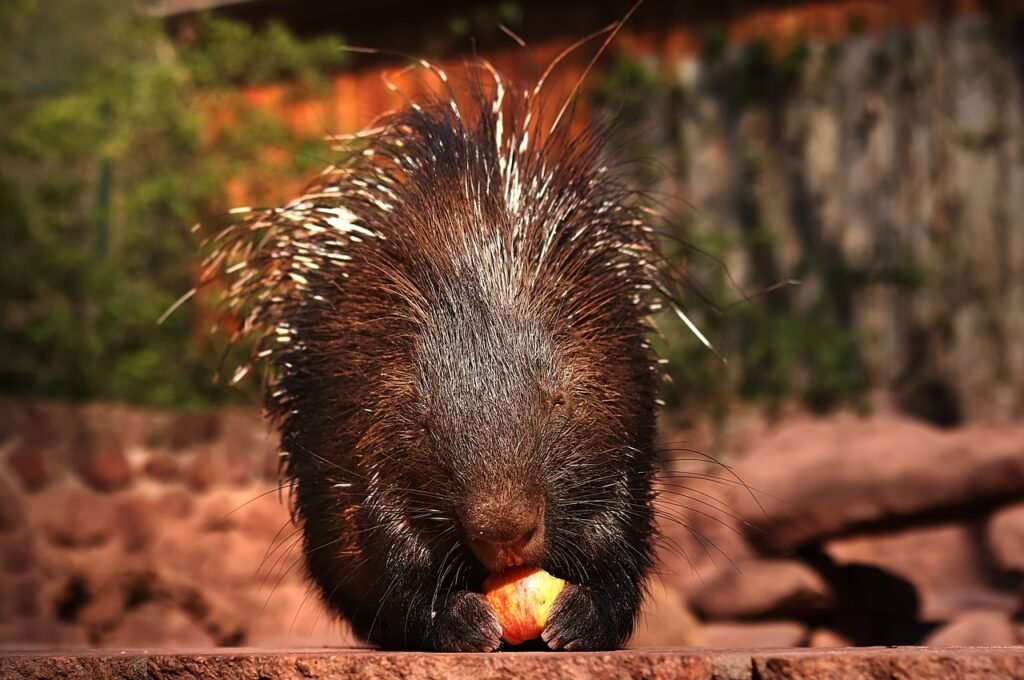Snacking is not just about satisfying taste buds; it’s an opportunity to provide your porcupine with enrichment and nutritional benefits. Choosing healthy treats contributes to their overall well-being, mental stimulation, and strengthens the bond between caregivers and quilled companions. In this guide, we explore the world of smart snacking for porcupines, offering a variety of treats that enhance their lives in both taste and enrichment.
The Importance of Smart Snacking:
1. Enrichment Opportunities:
- Smart snacking serves as a form of environmental enrichment for porcupines. It stimulates their senses, encourages foraging behavior, and provides mental stimulation.
2. Nutritional Boosts:
- Treats can offer additional nutrients that may not be present in their regular diet. This ensures a well-rounded nutritional intake for your porcupine.
3. Bonding and Training:
- Using treats during training sessions helps build a positive association with commands and strengthens the bond between you and your porcupine.
Healthy Treat Options:
1. Nuts and Seeds:
- Almonds, walnuts, and pumpkin seeds are nutritious and can be provided in moderation. Ensure they are unsalted and serve as occasional treats for mental stimulation.
2. Fruit Slices:
- Apples, berries, and melon slices are tasty and provide natural sugars and vitamins. Cut them into bite-sized pieces for easy snacking.
3. Leafy Greens:
- Kale, spinach, and parsley can be offered as treats. These leafy greens contribute to their overall health and add variety to their diet.
4. Herb Mixes:
- Fresh herbs like cilantro, mint, and basil add flavor and enrichment. Create herb bundles or scatter them in their habitat for foraging fun.
5. Vegetable Sticks:
- Carrot and zucchini sticks are crunchy and promote dental health. They also engage your porcupine in natural chewing behavior.
6. Whole Grains:
- Cooked quinoa or brown rice can be provided as an occasional treat. These grains offer a different texture and nutritional profile.
7. Dried Insects:
- Insects like mealworms or crickets provide protein and can be offered as treats. Ensure they are sourced from reputable suppliers and given in moderation.
Feeding Guidelines:
1. Moderation is Key:
- While treats are enjoyable, moderation is crucial to prevent overfeeding. Limit the quantity to maintain a balanced diet.
2. Monitor Individual Preferences:
- Pay attention to your porcupine’s preferences. Not all porcupines have the same taste, so observe which treats they enjoy the most.
3. Incorporate into Training:
- Use treats as positive reinforcement during training sessions. This encourages your porcupine to associate commands with rewards, making the learning process enjoyable.
4. Interactive Treat Dispensers:
- Invest in treat-dispensing toys to make snacking an interactive and engaging experience. This stimulates their problem-solving skills and adds an extra layer of enrichment.
5. Consult with a Veterinarian:
- Before introducing new treats, consult with a veterinarian specializing in exotic animals. They can offer guidance based on your porcupine’s specific dietary needs.
Snacking with Purpose
Smart snacking is about more than just indulgence; it’s a way to enhance your porcupine’s life through enrichment and nutrition. By selecting healthy treats, incorporating variety, and considering their preferences, you contribute to their overall happiness and well-being. Snacking with purpose ensures that every treat is a moment of joy, fostering a positive and enriching environment for your quilled companion.



